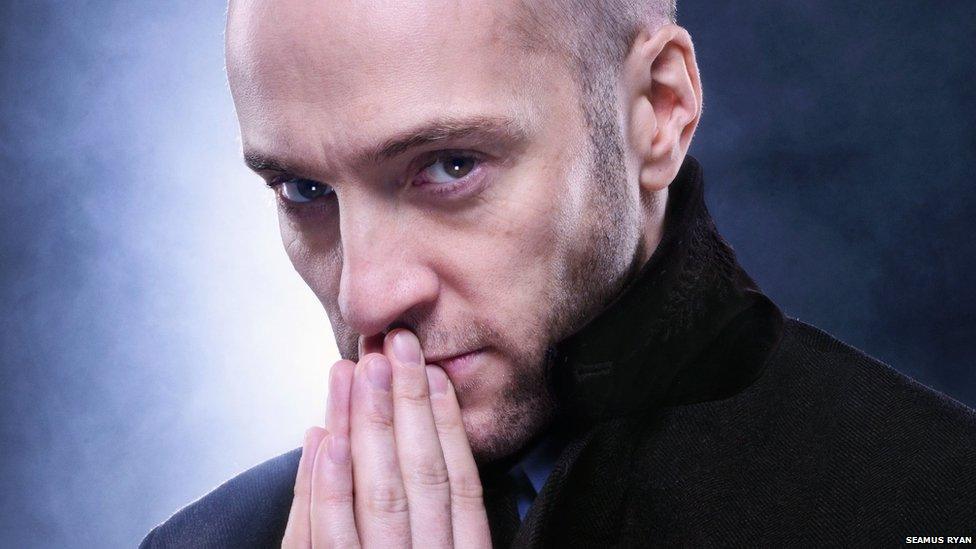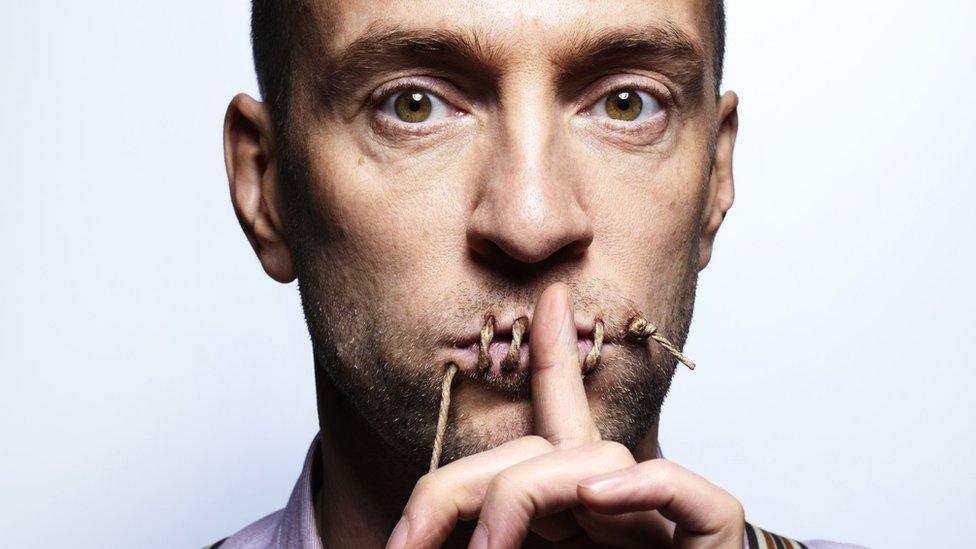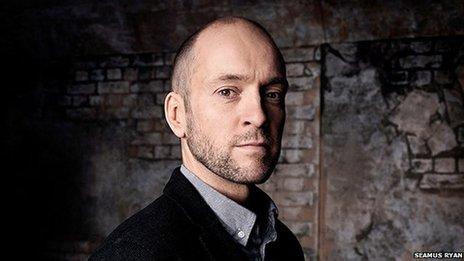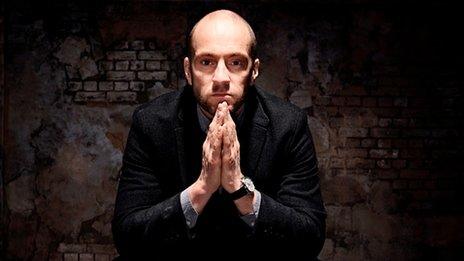Derren Brown: 'Fame makes people more suggestible'
- Published

Brown asks his audiences, and attending journalists, not to spoil his shows' surprises
"It's a slightly madder and bigger and bolder show than the previous ones."
Derren Brown is talking about his new show Miracle, which is about to kick off a West End run. Or rather, he isn't talking about it because he can't talk about it. Because it would ruin the surprise.
And you won't be able to read about it, because he asks journalists and audience members not to talk about it either.
Which makes interviewing him a little bit of a challenge.
Derren Brown works miracles
"People who have seen any of the previous shows will get the basic idea that it relies on audience participation," he says.
"The title of this one, more than previous shows, does feed into the content. The miracle idea is something that is quite central to the show."
Can people assume then, that the title of the show, along with the poster showing Brown bathed in ethereal light, his hands clasped prayer-like in front of him, that he will be addressing big themes like religion and faith and possibly birth and death?
"There are definitely themes that we will touch upon," he smiles.
Brown first came to fame 15 years ago with his Mind Control shows for Channel 4. Since then, Brown, described variously as "illusionist, mentalist, trickster, hypnotist, painter, writer, and sceptic" has produced a number of TV and live shows.
His last was Infamous in 2013, preceded by Svengali in 2011, for which he won an Olivier award.
As he says, Brown's shows rely on an audience willing to participate and he admits being a household name has, in many ways, made his job easier.
"If you have prestige in some people's eyes then they become more suggestible around you and, with this show, I was really trying to push at the edges of how much I could get from people just relying on that level of expectation.
"With this one, I am asking the audience to make quite a big leap of faith with it. It was a huge relief on the first dress rehearsal that people went with it and it worked."

Brown has designed an attraction for a theme park
But in a cynical age, wouldn't it be reasonable to assume that audiences are more reluctant to accept demonstrations of hypnosis and mind-reading?
The success of magicians such as Dynamo, particularly with younger audiences, seems to counter that suggestion.
"If we do grow more cynical or less religious or all those things," says Brown, "there's still a gap there for the feeling of wonder or amazement or intensity or sense of ritual - all of these things that we supposedly lose, we tend to place them elsewhere, I guess they still cater to that core need, a part of being human."
The faith is a two-way street as Brown asks everyone in the audience to keep the show's secrets. In this social media-obsessed world where reviews may come during an interval, rather than after the curtain falls, Brown acknowledges that it is getting harder to stop people trying to figure out his tricks.
"I'm always really surprised and touched that people do go with it and are happy not to spoil it. but there's a wisdom of crowds now. If a magician posts the most amazing trick on YouTube, a bunch of people will watch it and discuss it and will come up with a solution, it might not be the right one but it could be very close and that's unavoidable."
With a new production company too, Brown revealed he is preparing to step back from the spotlight after 14 years of performing live shows and TV productions. And, of course, there is the new attraction which Brown has developed at Thorpe Park.
He is at pains to stress that he hasn't designed a rollercoaster, it is, rather mysteriously, a 13-minute 'experience'.
"The only brief was to make something that was fun and thrilling,
"The sheer budget involved is huge. If it does everything that it should do, it will be phenomenal."
Miracle is on at the London Palace Theatre until 16 January.
- Published8 July 2013

- Published5 August 2013
